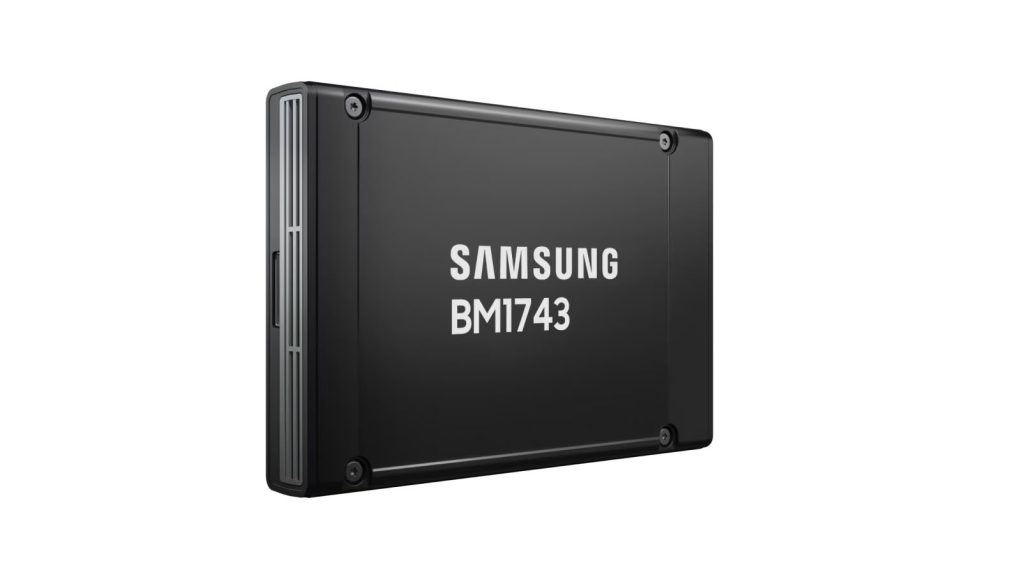You’d probably expect the announcement or launch of cutting-edge technologies and products to be blessed with marketing campaigns and whatnot but that’s not what Samsung’s latest SSD got – they literally made it as quiet as possible.
Officially named the Samsung BM1743, this is a whopping 61.44TB model, yes, per product unit with that level of storage. Hosting its own proprietary controller that supports both PCIe 4.0 and 5.0 x4 interface, it is built with Samsung’s 7th Gen V-NAND QLC memory chips and from this basic information alone, we know that the BM1743 is not for the likes of you and me but rather for data centers that demanded the most stable, highest capacity, and fastest possible storage device the market require.
In terms of speed, sustained sequential reads can reach up to 7,200MB/s while sequential writes are given the number of 2,000MB/s. Cared about random I/O? 1.6M 4K random read and 110K 4K random writes – not at the ceiling level but still pretty cool.
And you might have guessed it, it is created for data-intensive applications which include, yep, AI inferencing, as well as other stuff like CDN servers since they can host quite a number of large, single video files at once.
Looping back to the PCIe topic, Samsung plans to offer either U.2 PCIe 4.0 or E3.s PCIe 5.0 x4 which is great for expanded compatibility across different data center operators as well as a baseline of futureproofing in case something changes down the line.
However, concerns about power consumption need to be addressed by the Korean firm because no public info about that aspect has been disclosed. Or maybe data centers don’t mind about that (at least for now or maybe until sustainability activists want to pick a fight with them, I don’t know).
With everything revolving around AI, cloud, and data centers, Samsung’s move to capture the market with the BM1743 might be the strategy it needs to save its general business operations especially the slump of its fabrication division, as the current competitors in the 61.44TB market are Solidigm and Western Digital.
The BM1743 might just be the “baby steps” because the brand also discussed using the same technology to create a larger capacity model of 122.88TB. So now it is up to the industry to see whether these drives will fit the criteria and be attractive at the same time in terms of pricing to give Samsung some financial break.
Source: Tom’s Hardware









